
5 ways your donations are helping Rohingya refugees
Here are some of the ways the £30 million raised by the DEC's appeal is helping Rohingya families who lost everything fleeing Myanmar.
7 August 2018
Here are some of the ways the £30 million raised by the DEC's appeal is helping Rohingya families who lost everything fleeing Myanmar.
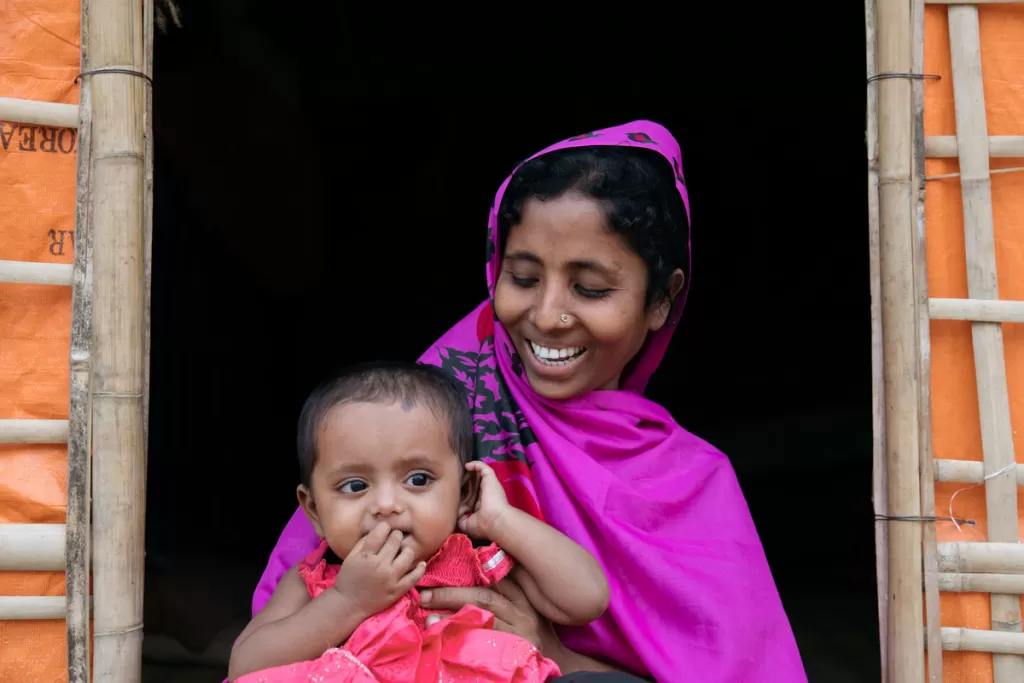
Sokina and her daughter sit in the doorway to their shelter in Moinerghona camp, Bangladesh. Paddy Dowling/DEC.
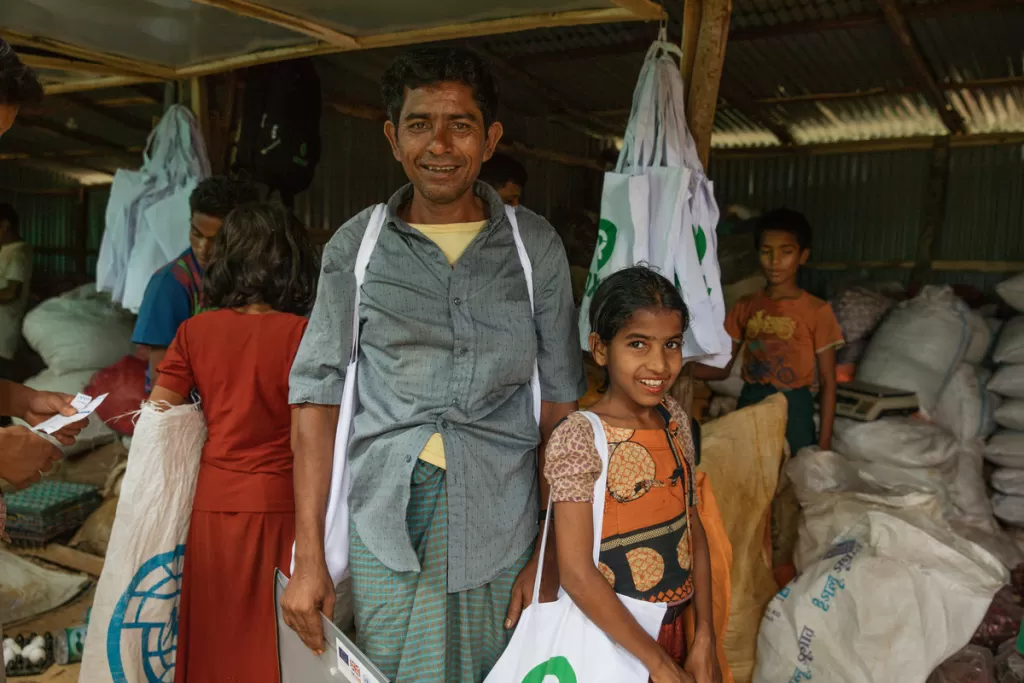
Sayed and his daughter collect fresh food from a DEC-funded voucher scheme, Moinerghona camp, Bangladesh. Paddy Dowling/DEC.
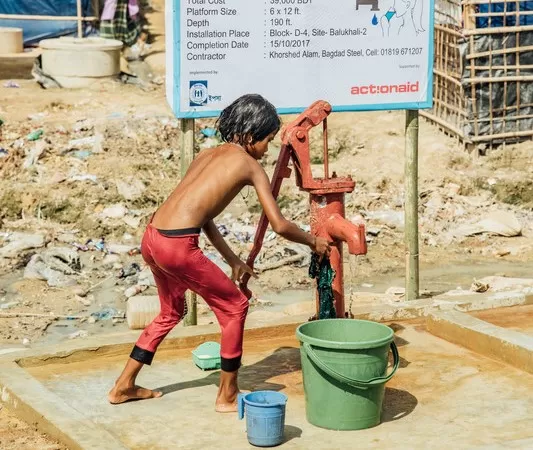
A child uses a water pump funded by ActionAid in the refugee camps near Cox's Bazar. Paddy Dowling/DEC
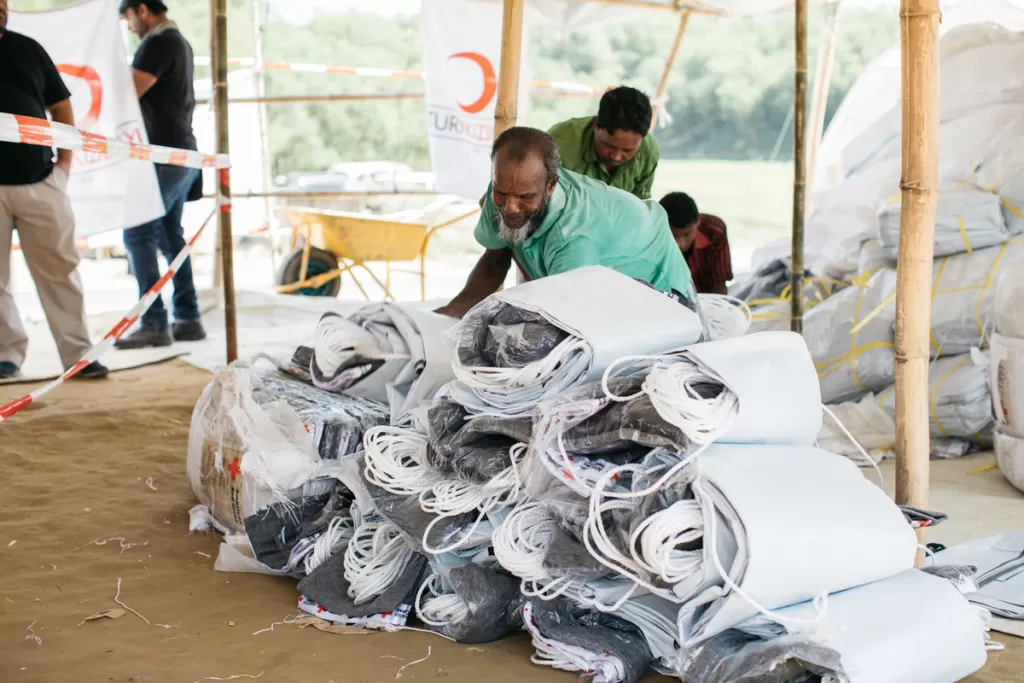
A shelter kit distribution point in the camps for people who have fled Myanmar. Paddy Dowling/DEC
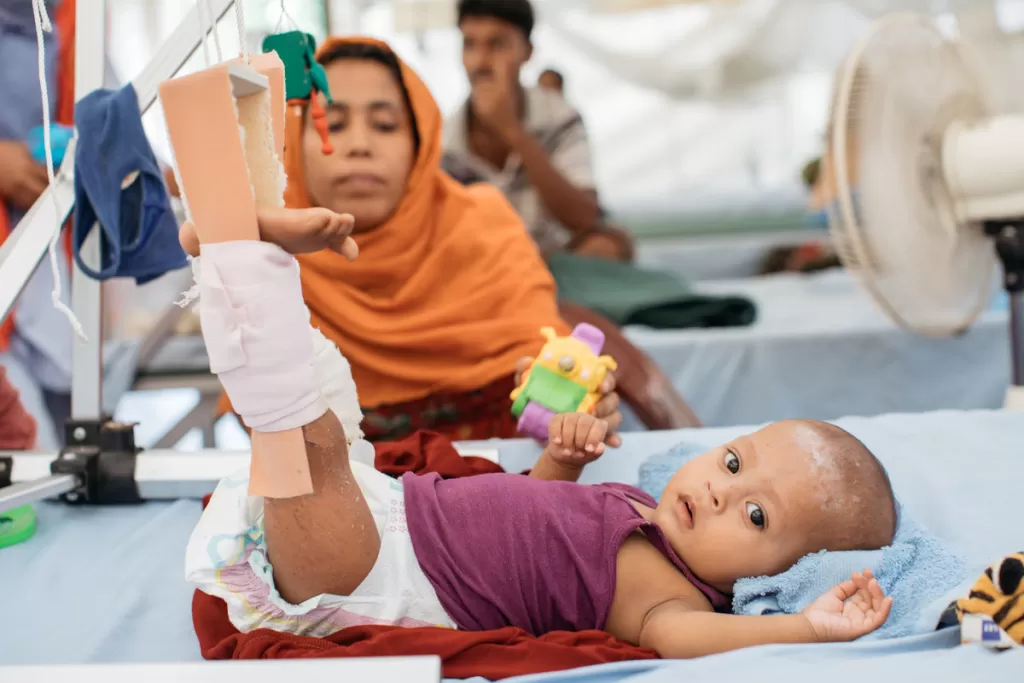
Mohammed, aged eight months, recovers in a Red Cross field hospital after suffering a broken leg when his sister fell and dropped him. Paddy Dowling/DEC.
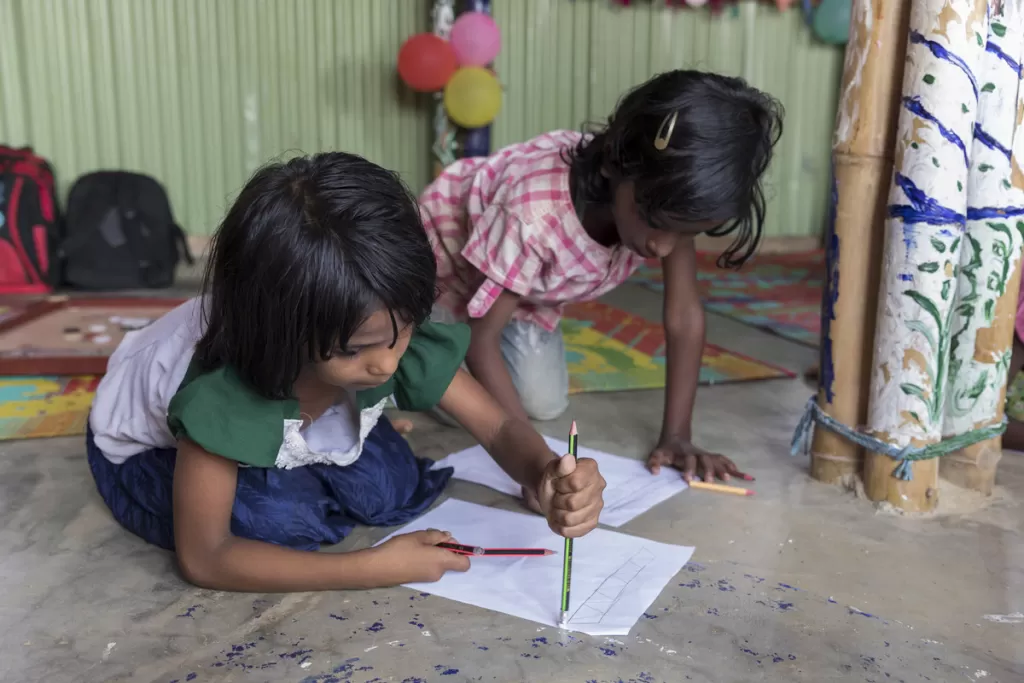
Girls play in a girl-friendly space in the camps for people who have fled Myanmar. Aungmakhai Chak/DEC.